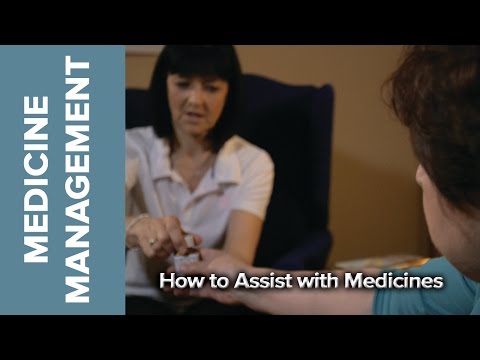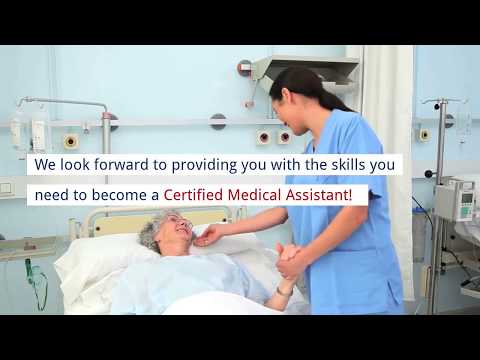Assisting with Medication: What You Need to Know
Contents
- Introduction
- What is medication assistance?
- Who can provide medication assistance?
- What are the benefits of medication assistance?
- What are the risks of medication assistance?
- How do I get started with medication assistance?
- What are some common medications that people need assistance with?
- How can I make sure my medication assistance is safe and effective?
- What are some other things to keep in mind when getting medication assistance?
- Conclusion
If you are a caregiver for an elderly parent or loved one, you may be responsible for assisting with their medication. This can be a daunting task, but by following these best practices, you can ensure that your loved one stays healthy and safe.
Checkout this video:
Introduction
Medication provides many people with the treatment they need to live healthy lives. But, taking medication can be complicated. It is important to know how to take your medication correctly and to understand what you need to do to get the most benefit from it.
There are different ways to take medication. The most common way is by mouth, either in pill form or as a liquid. You can also get some medications through injections or as topical treatments (applied directly to the skin).
It is important that you follow your healthcare provider’s instructions on how to take your medication. If you have questions about your medication, ask your healthcare provider or pharmacist.
What is medication assistance?
What is medication assistance?
medication assistance is when a person helps another person to take their medication. The person providing the assistance is known as a “medication assistant”.
A medication assistant can be a family member, friend, neighbor, or professional caregiver.
The role of a medication assistant is to make sure that the person takes their medication as prescribed by their doctor.
There are many reasons why someone may need Medication Assistance Some people may have trouble remembering to take their medication, or may have difficulty opening the container it comes in. Others may have physical limitations that make it hard to reach their medications or may be unable to see clearly enough to read the labels.
Medication assistance can help people to stay on track with their treatment plan and avoid complications from their condition. Assistance with medications can also help to ease the burden on caregivers, who may otherwise have to provide full-time care for their loved one.
If you are considering becoming a medication assistant, there are some things you should keep in mind. First and foremost, you should always check with the person’s doctor before providing any assistance with medications. It is important that you understand the instructions for taking the medication and are aware of any potential side effects.
You should also make sure that you have all of the supplies you need, such as a pill box or containers for storing pills, before starting your role as a medication assistant.
Who can provide medication assistance?
Typically, a licensed nurse is the only healthcare professional who can administer medications. Licensed practical nurses (LPNs), certified nursing assistants (CNAs), and unlicensed assistive personnel (UAPs) can only provide medication assistance under the direct supervision of a licensed nurse. In some states, this supervision may be provided via telecommunication technology such as two-way audio/video equipment.
What are the benefits of medication assistance?
There are many benefits of medication assistance, including improved compliance with medications, reduced anxiety around taking medications, and improved quality of life. In addition, medication assistance can help to reduce the cost of medications.
What are the risks of medication assistance?
There are a few risks to be aware of when assisting with medications, such as:
-Inaccurate dosing: If you don’t measure the medication correctly, the person you’re assisting may not get the correct dose. This could lead to under- or overdosing, which can be dangerous.
-Contamination: If you touch the medication or the person’s mouth with your bare hands, you could contaminate the medication and cause an infection.
-Allergic reactions: If the person you’re assisting is allergic to a particular medication, they may have a reaction if they take it. This could be anything from a mild rash to a life-threatening reaction.
Of course, these risks can be minimized by taking proper precautions, such as washing your hands before and after handling medications, and being aware of any allergies that the person you’re assisting has.
How do I get started with medication assistance?
If you’re interested in getting started with medication assistance, there are a few things you should know. First and foremost, it’s important to remember that medication assistance is not a substitute for professional medical care If you have any concerns about your health, please consult a qualified healthcare provider.
With that said, here are a few tips to get you started:
1. Speak with your doctor or pharmacist about your options. They will be able to tell you whether or not medication assistance is right for you and, if so, what options are available.
2. Research the medication assistance programs that are available to you. There are many programs out there, so it’s important to find one that meets your needs.
3. Enroll in a program and follow the instructions carefully. This will ensure that you get the most out of your medication assistance.
4. Keep track of your progress and results. This will help you determine whether or not the program is working for you and whether or not you need to make any adjustments.
What are some common medications that people need assistance with?
There are a variety of medications that people may need assistance with. Some common medications include:
-Insulin
-Oral diabetes medications
–blood pressure medications
-Heart medications
-Cholesterol lowering medications
-Antiplatelet or anticoagulant medications
-Pain medications
-Depression and anxiety medications
How can I make sure my medication assistance is safe and effective?
There are a few things you can do to make sure that your medication assistance is both safe and effective:
– Make sure you understand the reason for taking the medication.
– Make sure you understand how to take the medication.
– Make sure you understand the potential side effects of the medication.
– Make sure you understand what to do if you experience any side effects.
– Make sure you keep track of how well the medication is working for you.
What are some other things to keep in mind when getting medication assistance?
In addition to the general tips above, there are a few important things to keep in mind when getting medication assistance:
-Make sure you understand what the medication is for and how it is supposed to help you.
-Do not be afraid to ask questions about the medication or assistance process.
-Be sure to follow any instructions given to you by your medications assistant.
-Keep track of how well the medication is working for you and report any changes to your medications assistant.
Conclusion
In conclusion, assisting with medication can be an important part of your job as a carer. You need to make sure that you are familiar with the person’s medication, how it should be taken and what the possible side effects are. You also need to be aware of the signs and symptoms of an overdose or underdose. If you have any concerns about the medication regime, you should speak to a healthcare professional.







